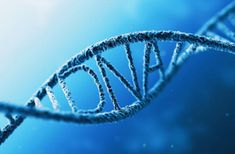Introduction:
In the ever-evolving landscape of health and wellness, the quest for personalized approaches to nutrition has reached new frontiers with the emergence of DNA-based diets. This cutting-edge concept tailors dietary recommendations to an individual’s unique genetic makeup, promising a bespoke roadmap for optimal health. As we delve into the realm of genomics and nutrition, this article explores the science behind DNA-based diets, their potential benefits, and the challenges they pose in revolutionizing the way we approach our dietary choices.
The Science Behind DNA-Based Diets:
At the heart of DNA-based diets lies the science of nutrigenomics, a field that examines the interplay between genetics and nutrition. Our genes influence how our bodies process and utilize nutrients, affecting everything from metabolism to nutrient absorption. By analyzing an individual’s genetic code, scientists can identify specific genetic variations, known as single nucleotide polymorphisms (SNPs), that may impact their response to certain foods.
This analysis enables the creation of personalized dietary recommendations, taking into account factors such as nutrient requirements, metabolism, and potential sensitivities. For example, someone with a genetic predisposition to lactose intolerance may receive guidance to limit dairy intake, while another individual with a higher metabolic rate may be advised on an optimal balance of macronutrients.
Potential Benefits of DNA-Based Diets:
Precision Nutrition:
DNA-based diets offer a level of precision that traditional one-size-fits-all approaches lack. By tailoring dietary recommendations to individual genetic profiles, these diets aim to provide more effective and efficient results.
Improved Nutrient Utilization:
Understanding how one’s genes influence nutrient metabolism can lead to better utilization of essential vitamins and minerals. This, in turn, may contribute to improved overall health and a reduced risk of nutrient deficiencies.
Weight Management:
Personalized nutrition plans based on genetic factors related to metabolism and satiety may offer more effective strategies for weight management. For example, individuals predisposed to a slower metabolism may receive recommendations that prioritize specific types of exercise and dietary adjustments.
Disease Prevention:
Certain genetic variations are associated with an increased risk of developing specific health conditions. DNA-based diets can be designed to mitigate these risks by incorporating foods and nutrients that may have protective effects.
Challenges and Considerations:
Limited Scientific Consensus:
While the potential of DNA-based diets is intriguing, the scientific community is still in the early stages of understanding the complex interplay between genetics and nutrition. The evidence supporting the efficacy of personalized nutrition based on genetic data is not yet robust.
Environmental and Lifestyle Factors:
Genetics is just one piece of the puzzle. Environmental factors, lifestyle choices, and dietary habits also play significant roles in shaping an individual’s health. DNA-based diets must consider these variables to provide comprehensive and accurate recommendations.
Ethical and Privacy Concerns:
The collection and analysis of genetic data raise ethical considerations regarding privacy and consent. Users must be informed about how their data will be used and protected, addressing concerns about potential misuse or unauthorized access.
Cost and Accessibility:
Currently, DNA-based diet services can be expensive, limiting accessibility for a broader population. As technology advances and becomes more widespread, efforts to make these services more affordable and accessible will be crucial.
Conclusion:
DNA-based diets hold the promise of revolutionizing the way we approach nutrition by providing personalized recommendations based on our genetic makeup. While the science behind these diets is advancing rapidly, it’s essential to approach them with a balanced perspective, considering both the potential benefits and the challenges they pose. As research progresses, the integration of genomics into nutrition may pave the way for a more individualized and effective approach to promoting health and well-being.















